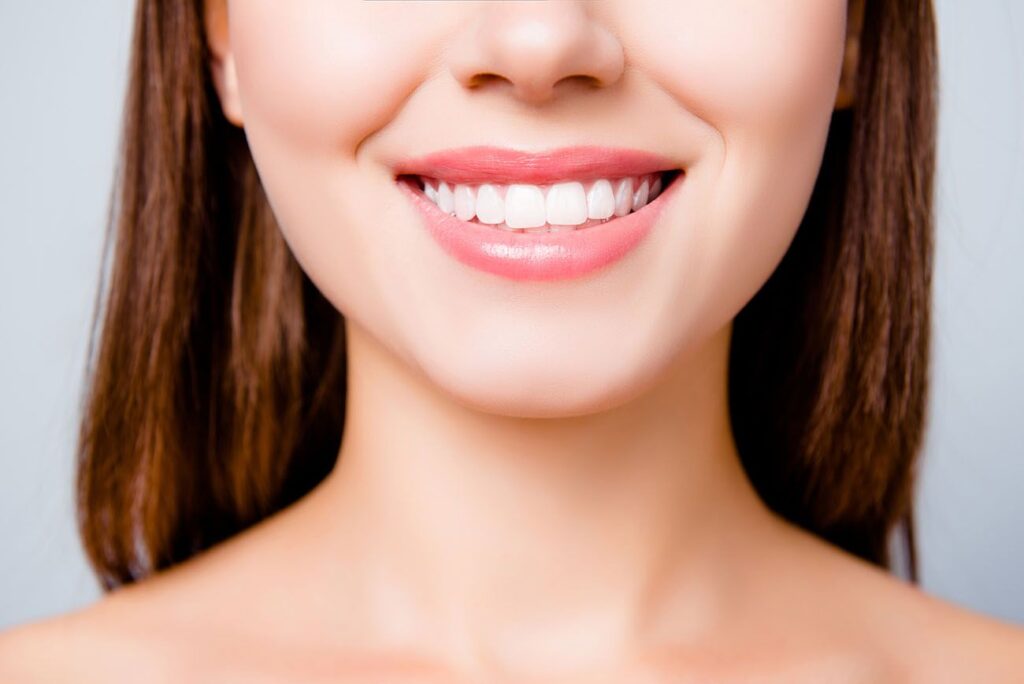If you notice a change in the shape of your teeth, you should contact your dentist. Over time, we can experience a shift in the shape of our teeth due to various reasons. Once you find the cause of your flat teeth, your Totally Smiles dentist can provide you with an appropriate treatment option.

Bruxism
Bruxism is a condition in which a person grinds their teeth or clenches their jaw. Typically, this occurs during sleep, making it a sleep condition. However, some people may clench their teeth as a coping mechanism or due to high emotions. Stress, anger, and anxiety can cause people to clench their jaws. Unfortunately, grinding your teeth can severely damage your teeth over time.
Grinding your teeth puts excess stress on your teeth, which can damage the enamel. For example, people who grind their teeth are more likely to chip or break their teeth compared to those who do not. Your teeth cannot handle the extra pressure on the points and ridges of your teeth. As a result, these important structures of your teeth can break off or wear down over time.
Temporomandibular Joint Disorder (TMJ)
A major cause of tooth or dental erosion is temporomandibular joint disorder (TMJ). TMJ affects the way your jaw joint moves, including the muscles, joints, and ligaments. There are a number of ways that you can develop TMJ (e.g., genetics, injury, etc.), but it can affect more than just your jaw.
If your jaw doesn’t perform a smooth hinging motion, you can actually damage your teeth. The tops of your teeth should hit each other when you chew. However, a deformity or damage in your jaw joint could prevent this from occurring. Over time, you can wear down parts of your teeth, making them flat.
Age
As we age, we naturally wear down our teeth. Over decades of use, our teeth begin to lose their shape and structure. Although our enamel is the strongest tissue in our body, it is not immune to the effects of aging.
Treatment Options
It is important to seek treatment options from your dentist. Having flat teeth can impact your ability to chew your food efficiently. Unfortunately, this can create a nutrition deficiency.
Dental Crown
If your teeth are significantly flattened, you may need a dental crown. A crown is a porcelain cap that your dentist will place on the top of your tooth. Dentists use dental crowns to restore the look and function of your teeth.
Mouthguard
If you have TMJ or grind your teeth, your dentist will likely recommend a mouthguard. This is a soft plastic dental appliance that you will wear while you sleep. It will keep you from applying too much pressure to your teeth and jaws. As you bite down, the mouthguard cushions your teeth, protecting them. Additionally, it places the pressure across all of your teeth rather than just a few.
